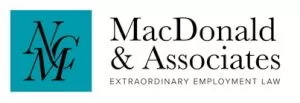The current unprecedented situation with which we are all faced requires immediate and complex decisions to be made in the workplace.
We are continuing to monitor things, as they are evolving and will report as they do. To that end, we have compiled the following Dos and Don'ts for Employers and Employees alike:
DO:
- Monitor government websites: The Government of Canada's Public Health Agency; Infection Prevention and Control Canada and Travel Advisory to remain current on the progression of the virus and government response;
- Require that all employees who have recently travelled abroad stay home and self-quarantine for a minimum of 14 days to monitor symptoms;
- Require any employee coughing or sneezing to remain at home and call the public health authority to obtain instructions on what to do;
- If an employee has tested positive for COVID-19, remove that employee and any employees with whom the infected employee worked closely for at least 14 days;
- Ensure sanitation by:
- wiping door handles and light switches throughout the day;
- provide hand sanitizer to employees and visitors to the workplace;
- request that all persons who enter the workplace sanitize their hands upon entry by either washing their hands thoroughly (for at least 20 seconds) or by using hand sanitizer;
- Accommodate reasonable employee requests in relation to COVID-19 (ie: work from home, etc), unless doing so would amount to undue hardship based on cost, health or safety;
- Ensure employees are aware of the employer's sick leave or disability leave policies and benefits that are available to them. This includes both the company policies and those provided for under the Employment Standards Act, 2000 and any other government benefit programs (such as Employment Insurance sickness benefits and any others);
- Communicate with employees and appoint one person to answer questions, and ensure employees are informed about any updates to policies surrounding COVID-19, such as work from home and any paid/unpaid leave options that may be available;
- Consider accommodation requests in good faith, without need for medical notes;
DO NOT:
- Single out and treat any employees differently based on a protected ground under the applicable Human Rights Legislation. Treating someone differently based on their ethnicity, race, or place of origin is prohibited;
- Do not send an employee home or ask them not to work because of concerns over COVID-19 unless the concerns are reasonable (ie. Excessive coughing/sneezing) and consistent with the official government and professional medical advice;
- Discipline or terminate an employee who is absent from work due to being quarantined by health officials or self-isolating at home in connection to COVID-19;
- Unreasonably discipline or terminate an employee who has care-giving obligations related to COVID-19.
Employers must be extra-sensitive to their employee's care-giving obligations, which may increase as a result of public school closures due to COVID-19 or having a family member who is ill or is in self-isolation. In these cases, employers are advised to abide by their legal duty to accommodate an employee to the point of undue hardship, which may include letting the employee work from home or taking a leave of absence (whether paid or unpaid), as the case may be.
The content of this article is intended to provide a general guide to the subject matter. Specialist advice should be sought about your specific circumstances.
We operate a free-to-view policy, asking only that you register in order to read all of our content. Please login or register to view the rest of this article.


